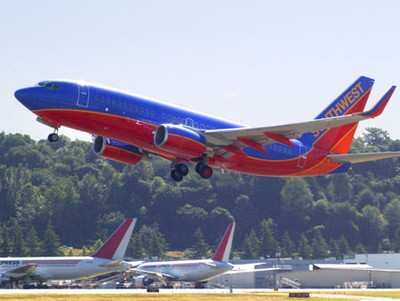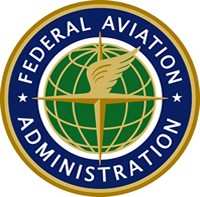PASS Questions FAA's Relationship With Airlines
More than few within the aviation industry were surprised to
hear Thursday about the record $10.2 million fine proposed by the
Federal Aviation Administration against Southwest Airlines, for
failing to perform fuselage fatigue inspections on its oldest
737-300 and -500 Classic aircraft in line with federally-mandated
timetables. Southwest has owned up to some of the charges, and
maintains it informed the FAA of its own oversights last year.

It's worth noting Southwest has an overall safety record almost
second to none; the only fatality attributable to the airline came
in December 2005, when a small boy died after the car he was riding
in was struck by a 737 that careened off an icy runway at Chicago's
Midway Airport.
Still, response from within -- and without -- the aviation
industry has been swift, and damaging. The severity of the recent
charges, and the FAA's proposed fine for noncompliance, guarantees
this issue won't go away quietly, and may have long-term
ramifications for Southwest... and other carriers, who are likely
now checking their own inspection manuals, as well.
 For its part, Southwest
says it alerted the FAA to the oversights last year. The inspection
in question -- meant to detect evidence of fuselage cracking, to
prevent the kind of catastrophic fuselage failure that occurred
onboard an Aloha Airlines 737-200 in 1988 -- is "one of many
routine, redundant, and overlapping inspections of our fleet,"
according to Southwest spokesperson Paula Berg.
For its part, Southwest
says it alerted the FAA to the oversights last year. The inspection
in question -- meant to detect evidence of fuselage cracking, to
prevent the kind of catastrophic fuselage failure that occurred
onboard an Aloha Airlines 737-200 in 1988 -- is "one of many
routine, redundant, and overlapping inspections of our fleet,"
according to Southwest spokesperson Paula Berg.
In a posting to customers on Southwest's blog Friday, Berg went
on to state "the specific inspection in question involves an
extremely small area in one of many overlapping inspections
designed to detect early signs of skin cracking on our aircraft. In
March 2007, Southwest Airlines discovered a missed inspection area,
disclosed the information to the FAA, and promptly reinspected all
of our potentially affected aircraft.
"The FAA approved our actions at that time and considered the
matter closed as of April 2007," Berg noted. "The Boeing Company,
which manufactures all of our aircraft, also supported our
aggressive compliance plan, and has issued a statement confirming
that we acted responsibly and, more importantly, that the safety of
our fleet was not compromised."
If it sounds as though Southwest is surprised at the timing of
the FAA charges -- well, they're not alone. The Professional
Aviation Safety Specialists -- the union that represents FAA
inspectors, including the two who brought allegations of skipped
Southwest inspections to the attention of Congress, as ANN reported Thursday --
said the FAA failed to act on the allegations made against
Southwest in a timely manner, and the union wants to know why.
"It is appalling that the FAA chose to impose this penalty only
after several months of investigations by Congress and the threat
of a pending hearing instead of immediately addressing the
implications brought forward by inspectors over a year ago," said
PASS President Tom Brantley. "The series of events not only
highlights the dysfunctional relationship between FAA management
and its workforce, but it also perpetuates the fact that the FAA is
only willing to take action against the airlines when backed into a
corner rather than taking inspectors at their word.
 "It is unfortunate that
the inspector assigned to Southwest Airlines had to resort to
invoking whistleblower protections in order to have his claims
validated. Even more unfortunate is that there are other inspectors
out there who undergo the same types of retaliatory actions by the
FAA and air carriers for simply doing their jobs," Brantley
added.
"It is unfortunate that
the inspector assigned to Southwest Airlines had to resort to
invoking whistleblower protections in order to have his claims
validated. Even more unfortunate is that there are other inspectors
out there who undergo the same types of retaliatory actions by the
FAA and air carriers for simply doing their jobs," Brantley
added.
Brantley also accused the FAA of developing "troubling"
relationships with the very airlines the agency is tasked with
overseeing. "Many of these partnerships have grown into more
‘cozy’ relationships that result in the FAA becoming
the protector of the airline rather than the flying public, thus
weakening the authority of FAA safety inspectors to perform their
job and reducing their role as critical safety enforcers," Brantley
accused. "The bottom line is that the FAA appears to be more
concerned with keeping airlines solvent rather than safe."
Southwest's Berg said the FAA "has concerns about the inspection
process, which we are willing and eager to work with them to
resolve. Receipt of the FAA’s letter of penalty gives us the
opportunity to present both our case and the facts, which we feel
will support our actions taken back in March 2007."
 ANN's Daily Aero-Linx (04.30.25)
ANN's Daily Aero-Linx (04.30.25) ANN FAQ: Turn On Post Notifications
ANN FAQ: Turn On Post Notifications Classic Aero-TV: Agile Aeros Jeff Greason--Disruptive Aerospace Innovations
Classic Aero-TV: Agile Aeros Jeff Greason--Disruptive Aerospace Innovations Aero-News: Quote of the Day (04.30.25)
Aero-News: Quote of the Day (04.30.25) ANN's Daily Aero-Term (04.30.25): Expedite
ANN's Daily Aero-Term (04.30.25): Expedite





